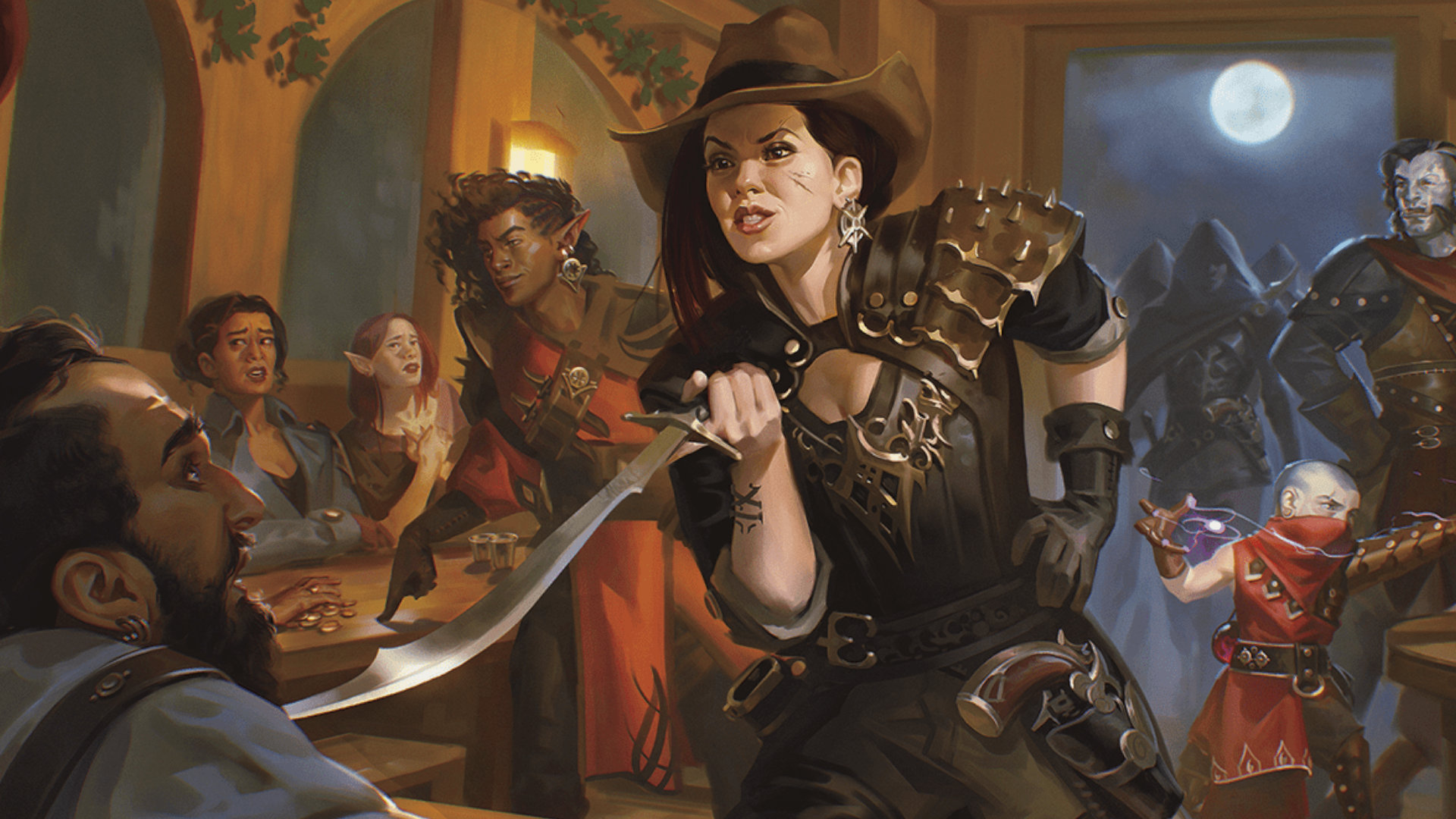
"A betrayal of the creative people who made the TTRPG industry what it is."
Generative AI has gotten its deep learning tentacles into many parts of gaming life, and tabletop is no exception—take Dungeons & Dragons for example. While Wizards of the Coast has endured controversy after controversy for accidentally putting AI art in sourcebooks, and has a generally anti-AI stance, Hasbro’s CEO Chris Cocks has been on the record as, uh, not doing that.
Which is why I’ve found myself pleasantly surprised to find out that Andrew Clayton, creator of the virtual tabletop software Foundry, has a two-boots-in-the-dirt hardline stance against AI, as per an interview with RPGDrop earlier this week.
If you’re playing any TTRPG online—be it D&D, Pathfinder 2nd edition, Blades in the Dark, whatever—chances are you might’ve done so on Foundry. It’s a little pricier and harder to set up when compared to something like Roll20, but makes up for it in spades with customisation, thanks to player-made modules you can slot into your game.
While the entire interview is interesting, Clayton very much speaks as the head of a company might—nothing overly corpo, but it’s all fairly polished and media-trained. When asked about AI, though? It’s a text interview, so I’m assuming a bit of tone here, but the word choice is downright stern.
“My own personal stance on this is that AI generated content remains—for the foreseeable future—an exploitative technology that unfairly harvests the intellectual property of artists, writers, and designers to produce soulless and derivative works without their consent,” Clayton says.
“Until the legal and ethical challenges of generative AI are more adequately addressed—and I don’t foresee this happening—I don’t think generative AI can be responsibly employed in our industry without it being a betrayal of the creative people who made the TTRPG industry what it is in the first place.”
This is a far cry from the aforementioned words of Hasbro’s CEO, who late last year talked a big game about “significantly and liberally” using AI, adding that his apparent 30-40 fellow D&D-ers (I guess he’s in a West Marches campaign or something) had all been drinking from the well of deep learning: “There’s not a single person who doesn’t use AI somehow for either campaign development or character development or story ideas. That’s a clear signal that we need to be embracing it.”
Clayton won’t even go that far, though. While he concedes that “generative AI content can have a role to play in private home games, where generative text or images can quickly supplement the storytelling with an improvisational aid or accessibility tool,” he says that it’s still “important for the user to understand it is actively disenfranchising human creators.”
That’s more or less where I land on it, too. Before the proliferation of AI, virtual tabletop players were grabbing images from Google for character reference, which is potentially rude to artists, but harmless in a utilitarian sense. And sometimes, players would then become attached enough to their characters to later commission artwork, so I’ve typically seen it as a net good.
And while I won’t lose sleep over those same players AI-generating artwork or writing for their home games, the key difference is that they’re supporting tools that—as Clayton says—are actively making money off scraping the internet and using real, actual human work without consent.
I should make a counterpoint here, though. While Foundry VTT doesn’t have officially-supported AI integration, I have seen modules that make use of AI in circulation before. These are modules created by players, and I wouldn’t ask Foundry VTT to ruthlessly moderate them, but it is worth noting that this is Clayton’s personal stake. Foundry, the company, is hardline against AI, but the people using Foundry aren’t necessarily stopped from doing so.
The real interesting meat here is, however, in how Foundry VTT has an official partnership with D&D as of February last year.
Hasbro’s Chris Cocks has been effusive about AI in tabletop, a stance that’s at odds with the rest of the industry—including WoTC’s business partners, apparently. Wizards of the Coast has its own policies, and I’d be surprised if anyone working there was jazzed about the concept, but the truth is Hasbro owns WoTC and a Hasbro executive will, invariably, have the final say.
But maybe Foundry’ll have AI in the future, once it’s better-legislated or something? “No.” Clayton says. Yep, that seems pretty clear-cut.
Baldur’s Gate 3 romance: Who to pursue
Baldur’s Gate 3 multiplayer: How co-op works
Baldur’s Gate 3 endings: For better or worse
Baldur’s Gate 3 multiclass builds: Coolest combos
Best RPGs: The greatest you can play now




